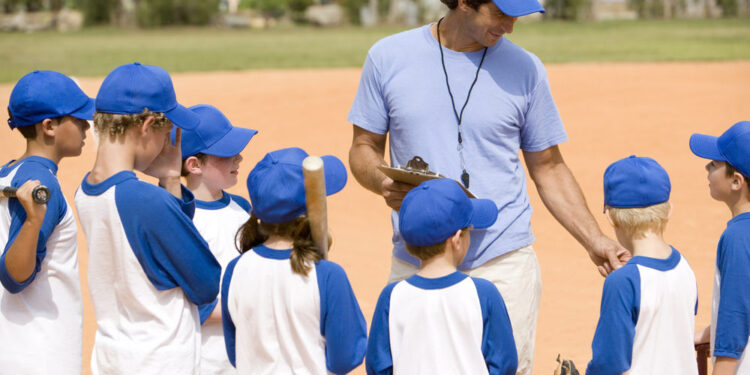Every youth sports program should have a very thorough set of rules and policies. Regardless if your participants are reading these in full, it is a must have to help govern your program. It will set expectations and give solutions if issues arise.
Here are 12 tips on creating, implementing, and enforcing your leagues rules and policies:
Use National General Accepted Game Play Rules
The extent depends on the sport, but there is generally a national governing body for each sport that will have game play rules by age group. Use these rules of play and/or your states high school rules as the basis for the sport you are trying to run. Note in the rules that anything not listed will be reference to these rules. This also provides your justification if parents or coaches question rules, you can let them know they are national or state standards, rather than trying to defend something you just made up because it sounded like a good rule.
Do Your Research
You may also want to check with your referee associations to see what rules they are accustomed to as well as what other organizations in your area use. From there, add your in-house rules that work for your program to finalize the rules of play for whichever sport you are offering. There is no reason to make things up as you go or re-invent the wheel.
Have Policies to Set Expectations
Other than your sports rules of play, you should also have your program policies, such as mandatory playing time, code of conduct, spectator seating areas, weather, cancellations, make-ups, discipline, player equipment, etc. Now participants know the rules going in and you have grounds to enforce them if it comes up.
Board Oversight
You should have a board or group of people who oversee creating and enforcing rules and policy so you do not put yourself on a pedestal to make all the decisions affecting the league. This is especially true for larger organizations. Whether it’s a volunteer board, group of coaches or your internal staff, group decisions are always going to be better and more well received when new policies are implemented or enforced.
Outline Your Program Goals
Outline the goals and focus of your program in your policies and make sure your parents and coaches see it and hear it from you. It needs to be engrained in them to form a positive culture in your program.
Mandatory Play Rules
Every young athlete paid the same registration fee and is there to play. It is a shame when coaches do not allow them in the game. Regardless of their skill level, every child must get playing time. Create policies that guarantee playing time for at least half the game. Once you have your policy, track it as best as possible so if it ever gets questioned you have back up. Also, if a coach falls short in getting kids in the game you can step in and force them to play based on your policy.
Special Requests
The ideal scenario for a recreation level program is that you get to the point where you do not take any requests from participants to be placed with another player – other than siblings – play for a specific coach, or for specific practice times. Teams should be formed solely on the skill levels of the players to make fair and balanced teams. Most leagues have far too many players to adhere to everyone’s request and still keep the teams fair and balanced so rather than picking and choosing who gets a special request, don’t take any. As long as you promote the potential days and times that games and practices will take place as well as make it clear you cannot take special requests, participants will fall in line on whichever team they end up on and will still have a great time within your program.
Formatting
Format your rules to make sure they flow, look nice, have a table of contents, and are easy to read. You may need to make additions and retractions as you go. Make sure whatever you change flows with the current rules and policies and don’t end up with contradictions. There are too many rule books out there you can barely get through because they don’t flow. It was clear things were added or taken out without considering everything else in it.
Distribute Your Rules
What good is a book of rules and policies if no one ever sees them? Make sure coaches have them and they are reviewed at a coaches meeting. Make them available to parents on your website and tell them it’s there or even email them out if you can. You do not need to review all the game rules with parents, but you should hit on some of the important policies at your orientation. The more informed your parents are the smoother game play will go as they will know what is going on and why certain calls are being made the way they are.
Consistency is Key
When it comes to your referees enforcing your league rules of play, consistency is key. This is why it is very important to review these with them and open that line of communication throughout the season. You may not have the ability to have the same officials there every week so with new crews comes new challenges as they may not enforce something the way the previous crew did. Have a “cheat sheet” with quick references for the referees on site and the full rule book if they need to look something up. Meet with officials before games start for the day to inform them of anything that may have come up the previous week.
Enforcing Rules of the Game
It is always better to enforce your playing rules, even at the lower levels and youngest ages. Your players will learn a lot faster if your officials are calling fouls and penalties. It is tough sometimes when the child made a great play and it gets overturned by a penalty, but they will learn a lot faster on the proper way to play.
Policy Enforcement
When enforcing policies make sure you are consistent and fair with everyone. This is across the board with players, parents and coaches. Sometimes it is better to find a compromise than be 100% black and white with the rules and policies. However, if you give a break for one person you will have to for everyone, so any policies that are for the betterment of the league should be enforced by the book.
Take your program rules and policies seriously in the formulation, implementation and enforcement within your program and you will soon realize your program will be more organized, run smoother and have the backbone it needs to succeed season after season.
For more resources on youth sports, view the Guide and visit the League Source website.










